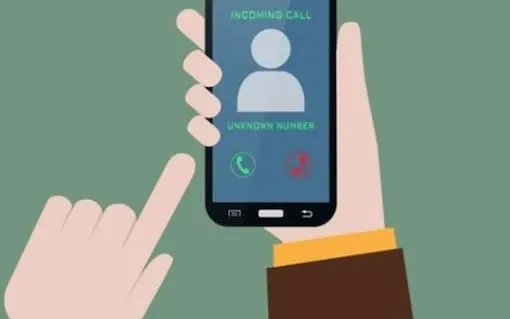Beware of Data Theft: Think Twice Before Sharing Personal Information at Food and Shopping Outlets
It was previously believed that scammers obtained phone number lists from banks or telecom operators, but a DoT official has revealed that many fraudsters use random dialing or alternative methods. Data leaks can also occur when individuals provide their name and phone number while ordering food or paying bills at establishments such as pizza outlets and cafes, which store and potentially share this information.
It is believed that while there is a small chance that an insider at a telecommunications company will hand over information in exchange for money to scammers, the selling of information by telephone companies to scammers is something of a myth because there is not enough monetary gain. So it is very likely that fraudsters get the information from the market when people share their information with shopping and grocery stores without asking anything.
In addition, according to the officials, it is also possible that these companies will sell data, because there is a good enough business proposition for their size. Some experts also believe that whenever cyber-attacks occur and personal information is leaked, it becomes a golden moment for fraudsters to capture all the information and target vulnerable people to carry out a financial scheme.
Greed and fear
Cybercrime thrives on two factors: “greed,” such as offering too-good-to-be-true jobs or an unexpected gift or package, and “intimidation” or “fear,” such as asking someone to pay a utility bill. to avoid power outage or claiming that the victim’s KYC (Know Your Customer) has expired.
Fraudsters use these factors to systematically defraud people. The first person organizes the phone’s SIM card, the second person opens bank accounts and payment apps with the wrong SIM card, and the third person impersonates. Posing as an agent of a telecom provider, bank or any other service agency, a third-party fraudster calls citizens using fake SIM cards to obtain their details such as Aadhaar number, OTP, PIN, CVV debit or credit card details and bank details. The fourth person withdraws the money after being cheated.
The primary link in the chain is fake SIM cards, whose untraceability and anonymity make the investigation of online crimes very difficult. Officials agreed that apart from fake SIM cards obtained by using fake documents to hide real identity, fraudsters also use Anonymous or mule bank accounts to stay under the radar. Such scammers also pay money to poor people every month to use their bank account to receive the scammed money.
So officials said that if people are more aware of these issues, the ‘greed’ factor will no longer exist, while the ‘intimidation’ can be reduced with the help of DoT by banning those fake SIM cards.
With the launch of the Sanchar Saathi portal and other methods, the authorities have already started identifying and restricting fraudsters. But given the sophistication of fraudsters, redemption is still a long way off.




